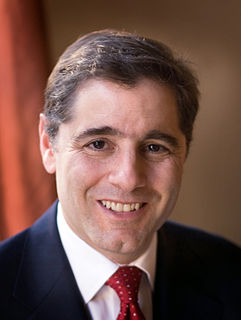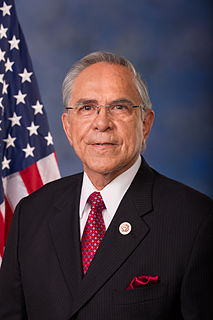A Quote by Vint Cerf
Like almost every major infrastructure, the Internet can be abused and its users harmed. We must, however, take great care that the cure for these ills does not do more harm than good. The benefits of the open and accessible Internet are nearly incalculable, and their loss would wreak significant social and economic damage.
Related Quotes
Everyone should be concerned about Internet anarchy in which anybody can pretend to be anybody else, unless something is done to stop it. If hoaxes like this go unchecked, who can believe anything they see on the Internet? What good would the Internet be then? If the people who control Internet web sites do not do anything, is that not an open invitation for government to step in? And does anybody want politicians to control what can go on the Internet?
I have been a strong supporter of a free and open Internet and have indicated this both prior to and subsequent to being sworn in as chairman of the F.C.C. I believe it is important to take concrete and reasonable steps to protect the freedom of users and entrepreneurs and businesses both small and large on the Internet.
Beginning in the Clinton administration, there was, for nearly two decades, a broad bipartisan consensus that the best Internet policy was light-touch regulation - rules that promoted competition and kept the Internet 'unfettered by federal or state regulation.' Under this policy, a free and open Internet flourished.
I'd go to conference after conference and it would essentially be the talking points. Either pro or con. It's amazing how polarized the tech conversation is. There's also this neurological fixation, the incessant wondering what the Internet's doing to our brain: "Does it make us stupid, does it make us distracted?" And then the other guys say, "No, it's making us smarter than ever, and better than ever, and more connected." And it's like, where is the economic and social context? Why is that rarely considered?
Things like social media and the Internet, of course, it's not going away. There is no cure for it. And this shouldn't be just like there shouldn't be, you know - it would have been a tragedy if there was a cure for the printing press. I think it's just that it's an amazing tool that we as a - as an animal are just getting to grips with because it's like we've grown a new ultra powerful limb and we're learning how to use it.




































